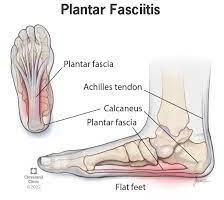The nurse is caring for a 44-year-old male with abdominal pain and persistent nausea/vomiting
What condition the client is most likely experiencing?
Peptic Ulcer Disease
Gastroenteritis
Acute Pancreatitis
Diverticulitis
The Correct Answer is C
Choice A rationale: Peptic ulcer disease doesn't typically present with ecchymosis around the umbilicus (Cullen's sign) or significantly elevated amylase and lipase levels.
Choice B rationale: Gastroenteritis is less likely given the specific symptoms, physical exam findings, and laboratory results indicating pancreatic involvement.
Choice C rationale: Acute pancreatitis fits the clinical picture with epigastric pain after heavy alcohol use, persistent nausea/vomiting, tenderness, and elevated amylase and lipase levels.
Choice D rationale: Diverticulitis typically presents with symptoms more localized to the lower abdomen and doesn't cause the characteristic findings seen in this scenario.
Nursing Test Bank
Naxlex Comprehensive Predictor Exams
Related Questions
Correct Answer is A
Explanation
Choice A rationale: Plantar fasciitis typically presents with severe pain in the arch of the foot, especially during the first steps in the morning or after prolonged periods of rest.
Choice B rationale: Multiple toe deformities are not typically associated with plantar fasciitis.
Choice C rationale: Redness and severe swelling are not typical findings in plantar fasciitis.
Choice D rationale: Numbness and paresthesia are not common findings in plantar fasciitis.
 |
Correct Answer is C
Explanation
Choice A rationale: Conus medullaris syndrome involves injury or compression to the end portion of the spinal cord and can present with various symptoms but not necessarily lack of normal sympathetic outflow leading to shock.
Choice B rationale: Concussion is a mild traumatic brain injury, and the symptoms described align more with spinal cord injury leading to neurogenic shock.
Choice C rationale: Neurogenic shock occurs due to the loss of sympathetic tone and is characterized by bradycardia, low blood pressure, and vasodilation following spinal cord injury at or above the level of the sixth thoracic vertebra.
Choice D rationale: Diffuse axonal injury typically presents with more widespread brain injury-related symptoms and is not associated with the specific spinal cord-related symptoms described.
Whether you are a student looking to ace your exams or a practicing nurse seeking to enhance your expertise , our nursing education contents will empower you with the confidence and competence to make a difference in the lives of patients and become a respected leader in the healthcare field.
Visit Naxlex, invest in your future and unlock endless possibilities with our unparalleled nursing education contents today
Report Wrong Answer on the Current Question
Do you disagree with the answer? If yes, what is your expected answer? Explain.
Kindly be descriptive with the issue you are facing.
